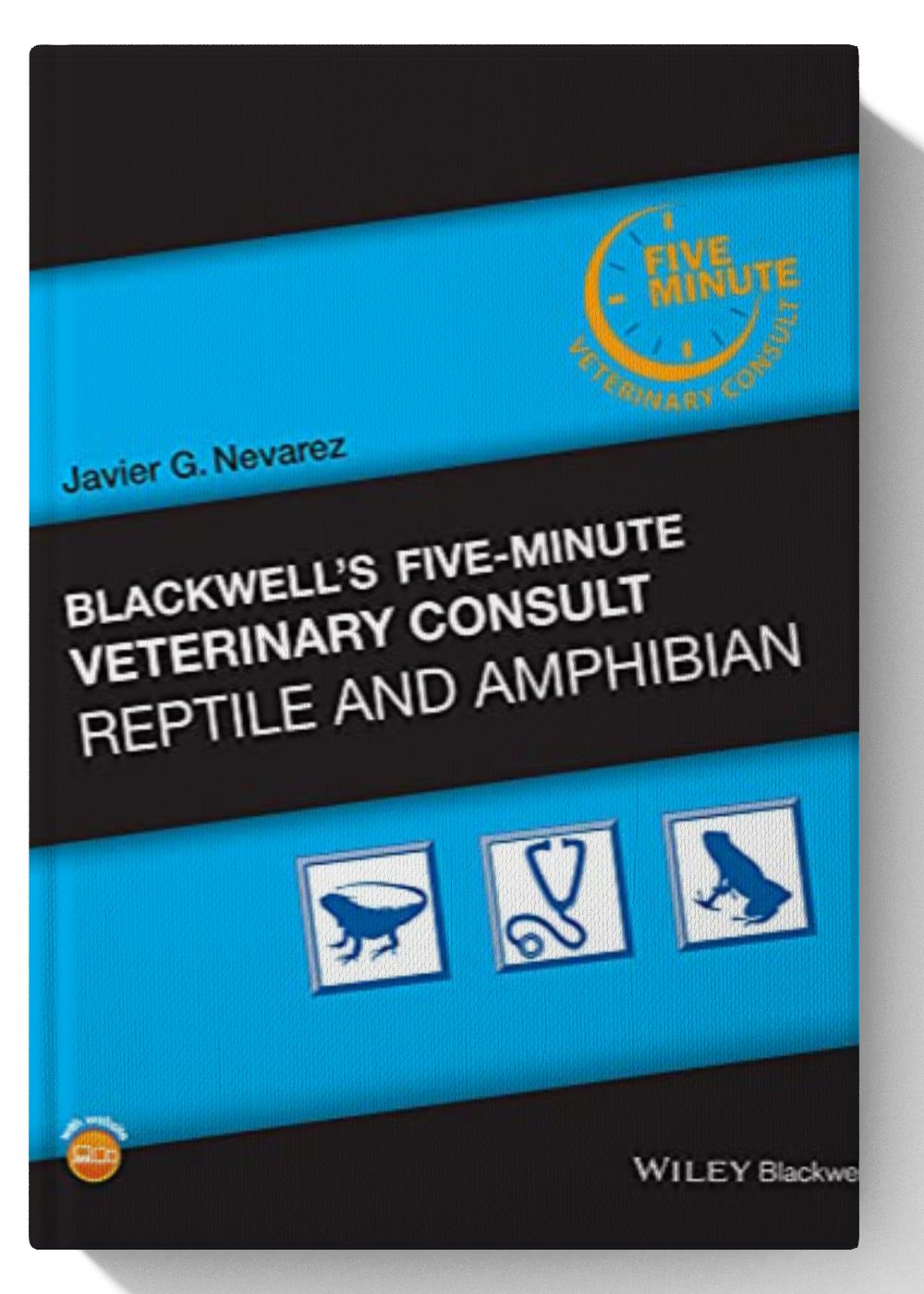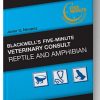BLACKWELL’SFIVE-MINUTE VETERINARYCONSULT REPTILE AND AMPHIBIAN
STAY UP TO DATE ON THE BEST PRACTICES FOR TREATING COMMON DISEASES IN REPTILES AND AMPHIBIANS
Blackwell’s Five-Minute Veterinary Consult: Reptile and Amphibian delivers a comprehensive exploration of the treatment of the most common diseases and disorders in reptiles and amphibians. The book is organized for quick and easy access to information, acting as an indispensable resource for veterinarians engaged in the care of chelonians, lizards, snakes, crocodilians, and amphibians.
The book offers readers guidance from leading international voices in the field of reptile and amphibian care, packaged in a perfect clinical manual. Diagnostic and treatment information is laid out in a logical, stepwise fashion.
Readers will also enjoy access to a companion website that provides users with printable history and physical exam forms, images that illustrate venipuncture and intravenous catheterization techniques in various amphibian and reptile groups, and images that illustrate methods of sexing reptiles. The ideal practical manual for veterinary practitioners and students seeking accessible and authoritative information on reptiles and amphibians, the book also offers:
- The treatment of common diseases and disorders in chelonians, including upper respiratory tract disease, cloacal prolapse, aural abscesses, and shell rot
- The treatment of common diseases in lizards, including hypovitaminosis A, nutritional secondary hyperparathyroidism, cryptosporidiosis, abscesses, and fungal infections
- The treatment of diseases affecting snakes, including dysecdysis, lower respiratory tract disease, inclusion body disease, stomatitis, and paramyxovirus
- A comprehensive exploration of the treatment of diseases affecting crocodilians, including West Nile virus, chlamydiosis, trauma, abscesses, and gout
Blackwell’s Five-Minute Veterinary Consult: Reptile and Amphibian is an indispensable reference for veterinary practitioners, students, residents, and interns who wish to improve their understanding and care of chelonians, lizards, snakes, crocodilians, and amphibians.


